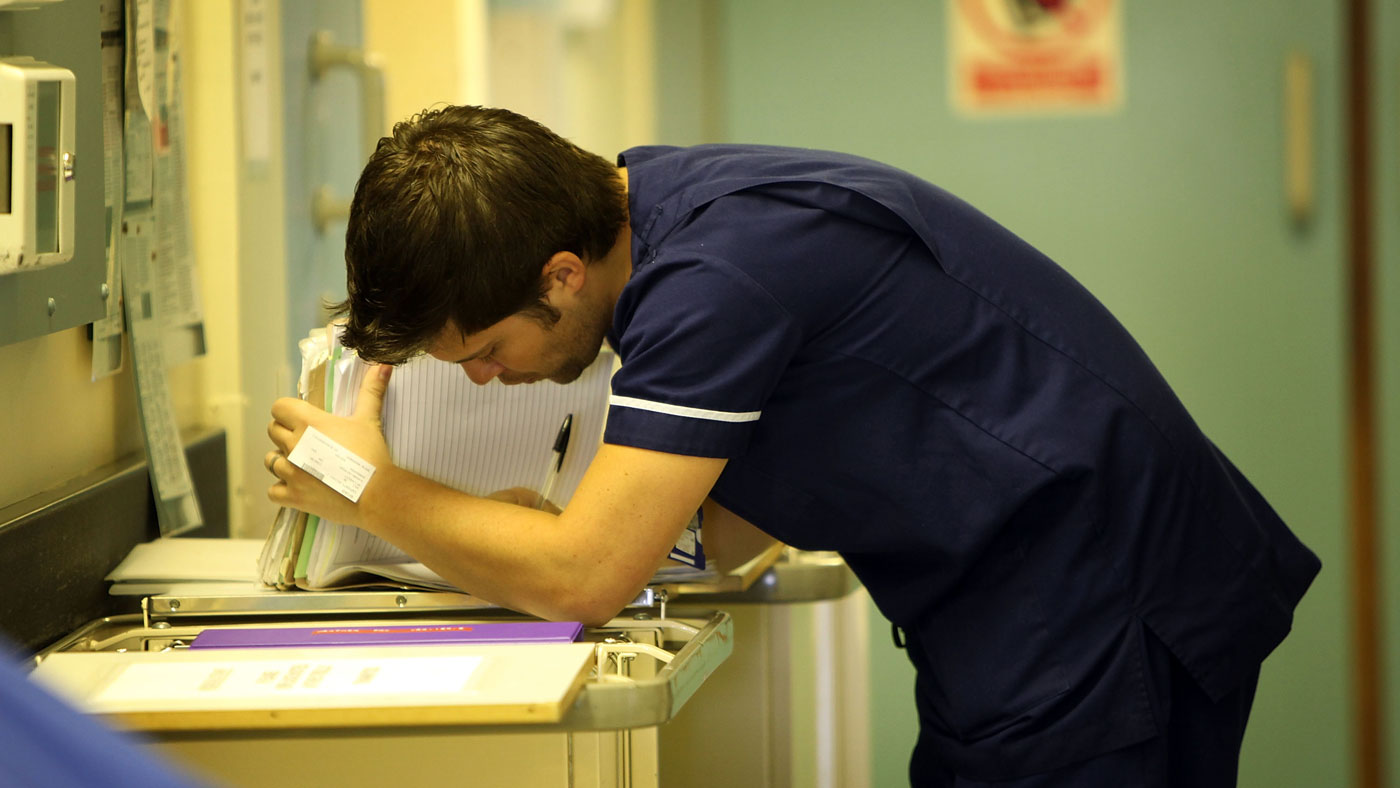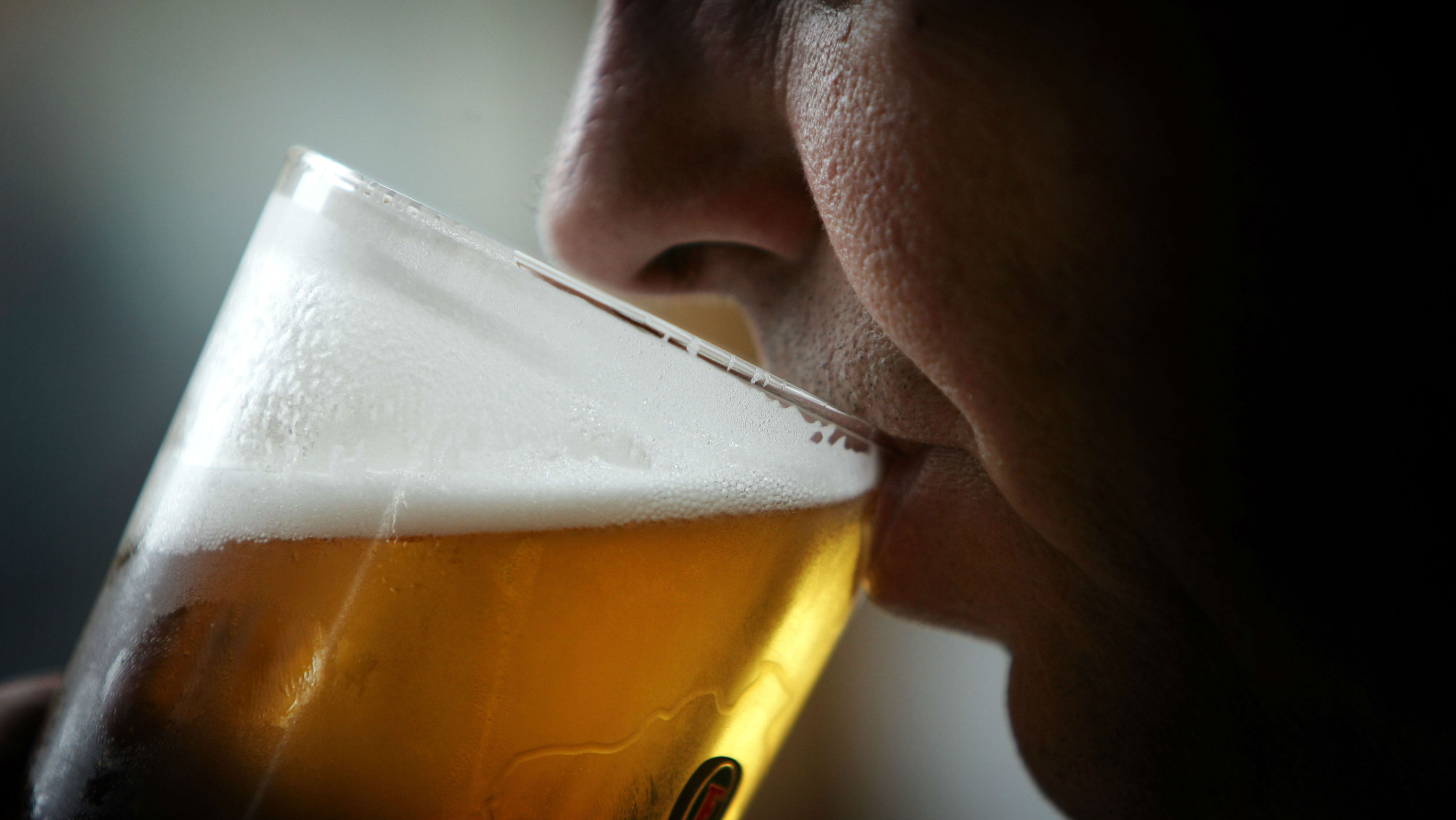Fact Check: The truth about mental health funding
Is Theresa May’s government really spending a ‘record amount’ on these services?

A free daily email with the biggest news stories of the day – and the best features from TheWeek.com
You are now subscribed
Your newsletter sign-up was successful
Theresa May has long pledged to ensure mental and physical health services are given equal priority, and is required by law to do so. Yet critics say that, in reality, there is a huge disparity in funding. Who is right?
What does the Government say?
May has insisted that “tackling the injustice of mental illness” is one of her “absolute priorities” as Prime Minister. Her government has promised to treat mental health as seriously as physical health, and claims it is spending a record amount on mental health services.
The Week
Escape your echo chamber. Get the facts behind the news, plus analysis from multiple perspectives.

Sign up for The Week's Free Newsletters
From our morning news briefing to a weekly Good News Newsletter, get the best of The Week delivered directly to your inbox.
From our morning news briefing to a weekly Good News Newsletter, get the best of The Week delivered directly to your inbox.
What have critics said?
Jeremy Corbyn has accused the Government of allocating “insufficient” funds for mental health services. Challenging the Tories’ record during Prime Minister’s Questions (PMQs) in March, the Labour leader claimed that spending had fallen by £600m between 2010 and 2016.
“Despite legislating for parity of esteem, the Government has failed to fund it,” he said.
What are the facts?
A free daily email with the biggest news stories of the day – and the best features from TheWeek.com
Parity of esteem - the requirement to treat mental and physical health equally - was enshrined in law in 2012 and became part of the NHS Constitution in 2015.
But although mental ill health accounts for 28% of the overall disease burden, it receives just 13% of NHS funding, according to The Centre for Mental Health.
Analysis by health think tank The King’s Fund shows that 84% of mental health trusts, which provide the majority of mental health services, did in fact receive an increase in funding last year.
However, funding for acute and specialist hospitals has grown more quickly - a 16.8% increase between 2012 and 2017, compared with just 5.6% for mental health trusts.
This means that the overall funding gap between mental health and acute NHS services continues to widen, the think tank said in a report published in January.
This deficit is exacerbated by the fact that mental health funding is not ring-fenced and can be diverted by the NHS to plug gaps in other areas.
“The squeeze on NHS mental health providers’ funding, together with a lack of available staff, has put huge pressure on the workforce and left mental health trusts struggling to staff services safely,” the report said.
Separate research by the Royal College of Psychiatrists (RCP) found that the income of mental health trusts across the UK had fallen since 2011, after taking account of inflation.
In England, 62% of mental health trusts reported a lower income at the end of 2016-17 than they had in 2011-12. Only one trust saw their funding rise in all five financial years, according to official figures.
The total amount of income that mental health trusts received in 2016-17 was £11.829bn - £105m less than in 2011-12 at today’s prices, the RCP reports.
Mental health trusts in Wales, Scotland and Northern Ireland have also seen their budgets cut in real terms.
“It is totally unacceptable that when more and more people are coming forward with mental health problems, trusts are receiving less investment than they did, in some cases, seven years ago,” said RCP president Professor Wendy Burn.
Where did Corbyn’s figure come from?
The Labour leader did not cite his source during PMQs, but he appears to have been referencing research carried out in 2015 by BBC News and the online journal Community Care.
The study found that mental health trusts in England saw their budgets fall by more than 8% in real terms between 2010-11 and 2014-15 – a reduction worth almost £600m.
Who is right?
The evidence suggests that both May and Corbyn’s claims are misleading. Although the majority of mental health trusts received a funding boost last year, budgets have been cut by £105m in real terms since the Conservatives came to power.
-
 The environmental cost of GLP-1s
The environmental cost of GLP-1sThe explainer Producing the drugs is a dirty process
-
 Greenland’s capital becomes ground zero for the country’s diplomatic straits
Greenland’s capital becomes ground zero for the country’s diplomatic straitsIN THE SPOTLIGHT A flurry of new consular activity in Nuuk shows how important Greenland has become to Europeans’ anxiety about American imperialism
-
 ‘This is something that happens all too often’
‘This is something that happens all too often’Instant Opinion Opinion, comment and editorials of the day
-
 Fact check: should you be worried about taking ibuprofen for coronavirus?
Fact check: should you be worried about taking ibuprofen for coronavirus?In Depth WHO reverses earlier recommendation that Covid-19 patients should avoid anti-inflammatory drugs
-
 Fact check: does mindfulness improve mental health?
Fact check: does mindfulness improve mental health?In Depth Schools in England will be teaching the practice to children and teenagers in a major new trial
-
 Fact check: the truth about artificial sweeteners
Fact check: the truth about artificial sweetenersIn Depth Are synthetic sugar substitutes in our food and drinks safe? The Week looks at the research
-
 Fact Check: Do pets really give babies a health boost?
Fact Check: Do pets really give babies a health boost?In Depth The Week checks out reports that furry animals can protect infants from allergies and obesity
-
 Fact check: does a pint a day really keep the doctor away?
Fact check: does a pint a day really keep the doctor away?In Depth One alcoholic drink per day cuts risk of fatal heart disease by 20%, study finds